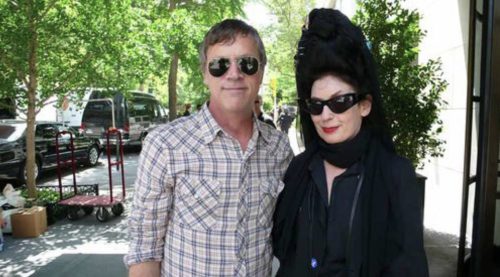
Dear Shaded Viewers,
“May December,” directed by Todd Haynes, made its highly anticipated debut at the Festival de Cannes, delving into the controversial Mary Kay Letourneau case from the late 1990s. This gripping story revolves around a sixth-grade teacher in her early to mid-30s, played by Julianne Moore, who embarks on an illicit affair with her thirteen-year-old student, portrayed by Charles Melton. The film explores the repercussions of their relationship as they navigate parenthood, with an older daughter from the teacher’s previous marriage and twins about to graduate high school.
Todd Haynes, known for his expertise in domesticity drama, masterfully captures the essence of this unsettling story, drawing parallels to his previous works such as “Safe” and “Far from Heaven.” However, the film elicited conflicting emotions and left me feeling uneasy. As a viewer, I expected a more thoughtful and considerate portrayal of such an intimate relationship, but the tone felt somewhat off, almost melodramatic at times.
One aspect that stood out was the campy and comedic elements incorporated into the narrative. Haynes skillfully utilizes these elements to highlight the performative nature of the characters and their actions. The sound design, coupled with soapy zooming shots, adds a touch of humor to otherwise tense scenes. The film takes inspiration from vernacular genres like soap operas and melodramas, which Haynes has previously explored in his work, adding his own unique twist while staying true to their conventions.
Despite the campy undertones, “May December” also exhibits compassion and emotional sincerity. The character development is particularly noteworthy, with Charles Melton’s portrayal of Joe, the former student now living as a parent with Moore’s character. Joe’s journey from a background fixture to someone who finds his voice and confronts his emotions is profoundly moving. Julianne Moore’s character, while complex and at times unsympathetic, evokes both compassion and criticism, shedding light on the complexities of her actions and the trauma passed on to her daughters.
The film’s introspective moments, such as the mirror scene, provide profound insights into the characters’ inner worlds. The narrative also explores the theme of performance, as Natalie Portman’s character, an actress researching the role of Moore’s character, delves deeper into their lives. Through her intervention, the film raises questions about the ethics of extracting personal stories for entertainment and the potential harm it can cause.
One aspect that troubled me was the film’s restrained approach. Given the profound impact of the Mary Kay Letourneau case and the ensuing media frenzy, I expected a more overt exploration of the consequences and societal responses. However, “May December” maintains a level of ambiguity, leaving room for interpretation and personal reflection.
While some viewers found the film’s campy and comedic elements effective, I struggled to fully embrace this tonal choice in the context of such a sensitive subject matter. The laughter from the audience during certain scenes, while intentional, created a sense of disconnect and unease. It is possible that revisiting the film with a fresh perspective could shed more light on its intentions and artistic choices.
In conclusion, “May December” is an intriguing film that prompts conflicting thoughts and emotions. Todd Haynes expertly blends campy elements with emotional sincerity, exploring the complexities of intimate relationships. While the film’s tone and its portrayal of the Mary Kay Letourneau case might not resonate with everyone, it raises important questions about the ethics of storytelling and the consequences of our collective fascination with tabloid narratives. With exceptional performances from Julianne Moore, Charles Melton, and Natalie Portman, “May December” offers a thought-provoking cinematic experience that will undoubtedly generate intense discussions among viewers.

Apologies for the interview’s backlighting, but the sheer joy of conversing with a director whom I have revered since my initial encounter with ‘Poison’ was too overwhelming to muster a request for a swap in our seating arrangement.
Later,
Diane



